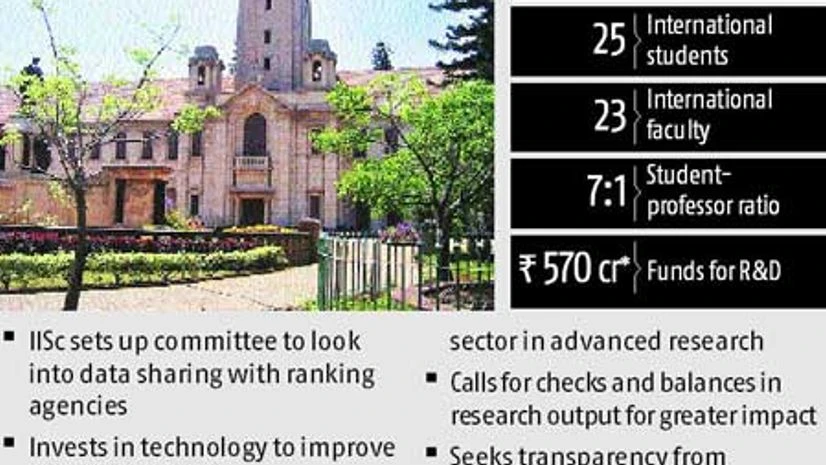The Indian Institute of Science (IISc) in Bengaluru boasts of an alumni that is among the most sought-after by global firms, largely due to the institute's focus on research and emphasis on basic science and engineering. Yet, while it features among the top compared to its Asian counterparts, globally, IISc has been finding it tough to improve its stature.
Recently, in the Quacquarelli Symonds (QS) World University Rankings 2016-2017, IISc's rank dropped from 147th position to 152nd position. The institute has seen ups and downs in terms of global rankings. Nevertheless, in recent times, as admitted by the institute's soft-spoken director Anurag Kumar, IISc has begun looking into providing data to ranking organisations for greater transparency.
"We have not been providing complete data to the ranking organisations. So, we formed a committee a few months ago and engaged a consultant to send the data to these organisations," Kumar had earlier told the institute's alumni.

According to the institute's alumni who are driving these sponsored research, there is a wide amount of investment now not only from the government but also from the private sector. The private sector will not invest unless they know it is a top-class place, because they provide hundreds of crores of rupees, they say.
While it works on sharing complete data with the agencies, IISc also calls for greater transparency in the global rankings. The institute's dean of engineering department, M K Surappa, is of the view that sufficient information on the rankings should be made available on public domain by organisations, too. Among these, Surappa calls for more transparency in terms of research methodology to be enforced.
As for the various parameters such as research impact in terms of number of citation by the faculty members, Surappa says the same does not validate as the quality of education for an institute. "It is not just the number of research papers but also the impact of the papers that should be considered, which is not being done," says Surappa, while adding that it is not only the quality of education that affects the research paper, but also facilities available or the lack of those. Surappa also rues the fact that governance and procedures of institutions are not friendly enough to promote research papers, thereby impacting rankings.
Like Indian Institutes of Technology (IITs), IISc too will have to work on citizenship diversity at its campuses, if it has to move up the ranking ladder. Among its peers such as IITs, IISc boasts of a healthy faculty:student ratio of 1:7. Plus, it has a large number of PhD students. Yet, international students currently constitute hardly one per cent of its 4000-odd student strength. Moreover, it also needs to add more female students and improve its current 1:5 female to male student ratio.
The IISc has 420 faculty members split equally between its Bengaluru and Challakere campuses. The second IISc campus at Challakere is located 220 km away from Bengaluru and is spread over 2,000 acres. The campus was part of an expansion of the IISc at the end of the last decade to increase the number of students passing out as well as the courses offered.
In what could boost more quality research at IISc, work is on for installing a synchrotron, a large, high-energy electron accelerator, at its more expansive new campus.
However, according to Surappa, Indian institutes also need to put some systems in place to vet research output that could ensure greater impact globally. "There are no systems in place, no checks and no balances maintained. Such things also contribute to the research papers and quality of education," Surappa adds.

)
